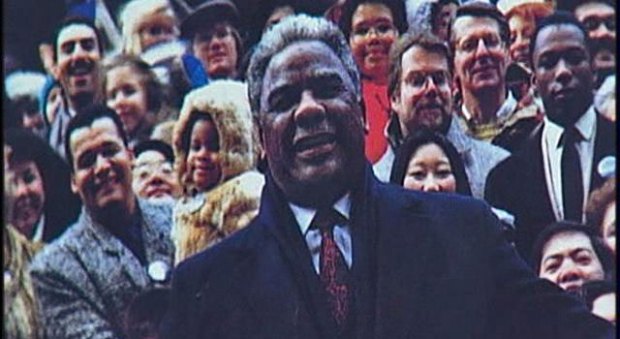| « Confessions of a Feminist Asshole | Board of Education President to Benefit from Proposed South Side Charter School » |
Election 2015 Mon Aug 18 2014
Six Months in Chicago

Image via NBC5-WMAQ
For six months in Chicago, there may be a rare, once-a-decade opportunity to get some answers. If that sentence seems magniloquent, that's because I had to start big since the subsequent sentence is, "That opportunity is the 2015 Chicago municipal elections."
That opportunity is the 2015 Chicago municipal elections. Chicago is defined by confluence; in the first instance, literally, as sitting at the confluence of Lake Michigan, the Chicago River, and the Chicago Portage, the connection between the Great Lakes and Mississippi watersheds. Soon after, the nation's railroad flowed together there; now, it's the confluence of the nation's air travel and trucking. Today, it is also a confluence of some of the country's biggest challenges.
Income inequality, gentrification, rising housing costs, under-resourced schools and creeping privatization, under-served mental health services, police brutality, street crime, segregation, environmental justice, exploitation of undocumented workers, police militarization, un- and under-compensated care work, wage theft, unemployment, over-crowded jails, hyper-criminalization, lack of government transparency, and crumbling infrastructure. These issues intersect on the orange-lit streets of the Great American City. Chicago is a beautiful city and livable city. It is also suffering.
The existence of these challenges has given rise to organized efforts for change. People have organized to protect and expand mental health services. Parents, teachers, and students have organized around education equality and democratic control--they've occupied libraries and struck for better classroom conditions. Journalists like Ned Resnikoff, Sarah Jaffe, Bryce Covert, and Josh Eidelson, among many others, have been cataloging how workers are using creative means to organize and agitate for better working conditions, including a $15 minimum wage. Environmental justice groups have successfully fought pollution-belching factories. Communities are uniting to challenge the prevailing thinking that aggressive police tactics do more good than harm.
In other words, communities of both interest and geography, have been pushed by deteriorating conditions into awareness and engagement. The Mayoral election offers an opportunity to knit together these budding movements into a progressive, democratically-rooted coalition; one that because it's rooted in communities (rather than sold to them) has the potential to meaningfully participate in governing.
This in a "global" city, one with both an authoritarian and radical tradition, with a monstrous history of racial dispossession and violence, a rich, militarized, heavily-surveilled city riven with poverty, lawlessness, and insecurity. If you can win Chicago, you can win everywhere.
Help build, support, and fund these coalitions, and the city will change, no matter which candidate wins. In the very process of coming together, disparate movements will have to articulate--or try to articulate--a common vision.
To a lot of people in Chicago this won't be revelatory. The Grassroots Collaborative, a coalition of labor unions and community and faith groups, and its political action arm, Grassroots Illinois Action (GIA), have begun the process of building an electoral coalition.
But it can't just be fashioning a campaign that looks like a movement to win an election; it has to be building a movement to trivialize the risk of an election. Elections are formal exercises that should reflect the way power is actually arranged. The democratic project requires people to have avenues to use power beyond exercising the franchise. This means, at least in part, being able to counter the power exercised over us--a voice in the workplace, an equitable justice system, participatory planning, control over education and civilian oversight of law enforcement and security. A city--really any government--should act as a function of this kind of popular input and control. Policy-making for the schools, for example, should emanate from democratic debate, and be implemented by democratic participation. It's a fairly straightforward vision: the people who live subject to an institution should participate in running it. The conditions in Chicago--public discontent, an ossified city government, national interest--offer an opportunity to try to a build relationships, networks, and organizations that can actually run things.
To help people build these structures will require money, time, and attention from sympathizers all over the country. The type of work and cash that goes into a single high-profile Congressional election can help fund an experiment in people-powered governance and accountability in Chicago. Whomever the candidates and whomever wins, that will be progress.











